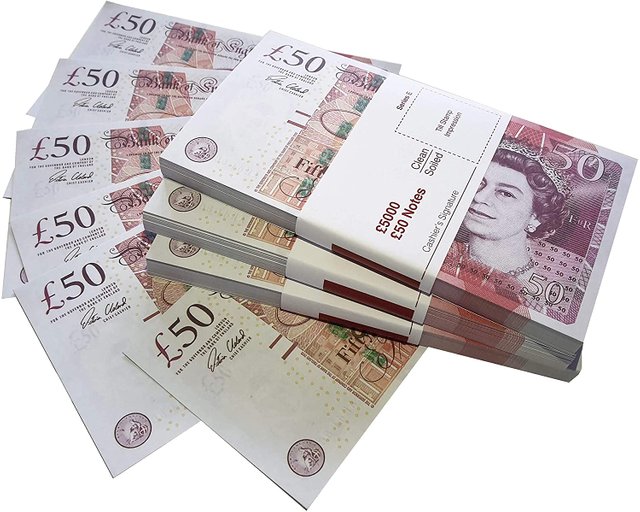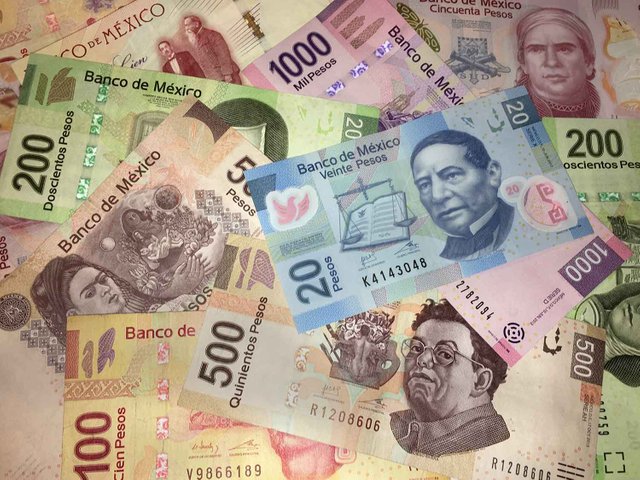
Money Saving Tips
We may not have control over the economy, but we do have control over our actions.
Keep track of your spending. If you know where your money is going it will be easier to make changes if you need to.
Separate your wants from your needs. When money is tight it should not be spent unless absolutely necessary.
Avoid using credit to pay your bills. While it may make things easier now, using credit only increases your monthly payments in the future.
Save regularly. Set up an automatic transfer each month from your checking to your savings account.
Check your insurance policies. Review the coverage for all your plans. You may have too much and be wasting money or too little and not be adequately covered.
Be careful about spending any significant amount of money, you may feel good while you are spending it, but you may wish you had the money later.
Cut or downgrade your services. If you have a cell phone, consider cutting your land line.
Try lowering your energy bill. Turn off appliances and lights when they are not needed.
Purchase energy-efficient light-bulbs. When you can, use a fan instead of air conditioning or put on a sweater instead of turning on the heat.
Consider signing up for online bill payment.
Cut down on take-out ordering. Even if the meal is not expensive, doing it frequently can really add up.

CLICK HERE - GET YOUR FREE SPECIAL REPORT
https://www.bit.ly/pltrepairmycredit
How to Start Saving Money
Monthly debt payments are the biggest drain on your money when it comes to saving.
Debt robs you of your income! The fastest way to pay off debt is with the ‘debt snowball method’.
You need to determine your payoff priority.
Having a payoff priority will help you create an effective plan to get rid of your debt quickly.
You pay off your debts in order from smallest to largest.
This is more about behavior change than numbers.
Pay much more than the minimum toward your debts whenever you can in order to accelerate your debt payoff.
This includes credit cards, student loans, mortgages, etc. - be sure your extra payments are going toward your principal balance.
Know your interest rates, prioritize your debt. Are you aware of the interest rates on any debt you have?
Ensure an emergency fund is in place. If you have an emergency fund in place, you are less likely to leverage debt to deal with an unplanned situation.
A personal finance tip is to start with $1,000.
Once you're able to get rid of your high-interest debt, increase it to 3 and then 6 months of your basic living expenses.
YOUTUBE:
Once your income is freed up, you can finally use it to make progress toward your savings goals.
You’ll only start saving money when you learn healthy money habits and allow your future needs be more important than your current wants!
You can stop the cycle of living paycheck to paycheck with a simple secret:
Make a budget before the month begins.
A budget helps you to create a plan so that you can see where your money is going and find out how much you can actually save each month.
Give every single dollar a name, assign it a job to do—before you save or spend it.
Remember: It really doesn’t matter how much money you make—what matters is how you spend and save that money.
Most people—after they do a budget—are shocked to find out how much they’re actually spending at the grocery store each month. And if you’re the average family of four (with two children under 5), you’re probably spending around $1200

Create a list before you go food shopping based on what you need at home! This will help you avoid impulse buys, especially at the grocery store.
It’s so easy to walk through those aisles, grabbing a bag of Oreos here and a few bags of chips there, and then fun goodies at the register. Those little purchases add up quite a bit and end up increasing the budget every month.
Save money on groceries by planning your meals each week and taking a good look at what you already have in your pantry before you go to the supermarket. If you really want to stick to your list—leave the children at home.
In other words, avoid those impulse splurges.
Buy generic, one of the easiest ways to save money is to stop buying brand-name products. In most cases, the only thing that’s better about brand-name products is the marketing. The logo is fancy! And that’s about where it ends.
Generic brands of medicine, staple food items (like rice and beans), cleaning supplies and paper products cost far less than their marked-up brand-name counterparts—and they work just as well too.
Use Ibotta, Rakuten and Honey to see what offers you can get cashback on at your local grocery store. They send you the money via a Paypal deposit or gift card once your account hits $20.
Challenge yourself to pack lunch every day for a week or a month. Put the money you save into savings or toward debt.
The average household spends about $3,600 on food consumed outside the home each year. That’s $300 per month!
Buying lunch a few times a week may seem harmless at the time but you can save quite a bit of money just by packing a lunch.
You can buy a week’s worth of groceries for the same price as two dinner meals eating out.
Instead, prepare your food at home and watch your savings accumulate month after month.
Make your spending freeze work by preparing meals with the food you already have, avoiding stores where you tend to impulse buy, say no to anything that isn’t a basic necessity.
If you truly want to save time and money, try online grocery pickup or delivery. Most major grocery stores offer it these days and it can save a lot of money.
CLICK HERE - I WANT TO REPAIR MY CREDIT
https://www.bit.ly/pltrepairmycredit

One of our favorite creative ways to save money is decluttering.
Go through your closet and your house, and sell the things you don't need or use. Put the money you earn into savings or use it to pay off debt.
Declutter the things in your home that you don’t need and are willing to let go of for the sake of your financial future, that vintage chair, that crystal vase you found at an antique shop? …Sell it!
You’d be surprised at how much clutter you have in your home that you don’t even use or think about.
The cash you can make on those things can be the difference between living paycheck to paycheck or not.
Unsubscribe from retailer emails, so that you don't get tempted to make impulse purchases every time they announce a sale.
Cut your salon visits by half or by doing your own hair and nails instead.
For every clothing purchase you make, ask yourself, "How often will I wear this?". If you aren't going to wear it enough, it's probably not worth it.
One of the best and creative ways to save money is by keeping your clothing in tip-top shape by investing in a sewing kit.
If something rips, see if you can repair it before you buy a replacement.
Join your local library and borrow books for free instead of buying new titles. You'd be surprised how the savings add up. Check out apps like Libby, where you can borrow digital and audiobooks from your local library without having to go in!
If you aren't using that subscription service, cancel it!
From gym memberships to magazine subscriptions, too many people have ongoing subscriptions that they barely use.
Maybe, you’re paying for multiple subscriptions like Netflix, Hulu, Spotify, gym memberships, trendy subscription boxes and Amazon Prime.
It’s time to cancel any subscriptions you don’t use on a regular basis.
If you cancel it and decide you can’t go without it, subscribe again—but ONLY if it fits into your new and improved budget.
Think about sharing memberships with some family or friends. Streaming services, like Netflix and Hulu, let you watch your favorite shows from two or more screens (with an upgraded account). That way, everyone wins—and saves!
Make sure that you turn off auto-renew when you make a purchase.
Freeze your credit cards! That will slow down that overspending habit of yours. This is one of the more extremely creative ways to save money.
Did you know that you can save money on your electric bill just by making a few minor adjustments to your home?

Looking for personal finance tips that reduce the cost of outings with children? Skip the overpriced concession/snack stand at the movies.
Pack your own snacks in your big handbag for a creative way to save money.
Start with some simple things like taking shorter showers, fixing leaky pipes, washing your clothes in cold water, and installing LED lightbulbs.
New, energy-efficient appliances are a great way to save money on your electric bill, but they’re expensive!
If you work it into your monthly budget, you can save up and pay cash for those improvements over time.
Next time you’re getting tickets at a movie theater, museum or sporting event, check to see if they have any special discounts for seniors, students, teachers, military or AAA members. Never underestimate the negotiating power of cash!
Gather up all the loose change in your house and car and make a deposit in your savings account or payment toward your debt.
Lower your cell phone bill. Save money on your cell service by getting rid of extras like costly data plans, phone insurance and useless warranties. Don’t be afraid to haggle with or completely switch your provider! The savings are worth it.
Skip the coffee shop, instead of spending $5 on that daily latte, you can save money by just making your coffee at home, even purchasing a bag of local beans from your neighborhood coffee shop and brewing it at home will save you a lot of money in the long run.
One of the best personal finance tips for insurance? Shop around yearly and compare your insurance rates to see if you can get a better deal on your current coverage needs.
Be sure you have the right type and adequate amount of insurance in place: auto, health, disability, life, home, renter's, pet, etc.
Not having insurance or having insufficient insurance can derail your financial plans in the event that something unforeseen happens.
Did you know people save an average of $700 when they have an Endorsed Local Provider (ELP) check their insurance rates for them? You owe it to yourself to at least have them look things over for you and see what savings they can create.
Run the numbers to see if refinancing could help save you money and cut years of interest off your mortgage. Reach out to a trusted ELP to see if a refinance package is worth it for you.
Wonder where your money is going? A creative way to save money is to start a spending journal and track your spending for 30 days. You'll start to see where it's going.
Overwhelmed with different bill due by dates? Organize your bill due by dates. Call your providers and ask them to move your due by dates so they are all around the same time.
Create a new budget for each new month. No two months are exactly the same, so adjust your budget accordingly.
You will probably need to try out a few different budgeting methods to find one that works for you.
Negotiate everything. Got a job offer on the table? Negotiate more than just your salary—think vacation days, bonuses, work hours, etc.
The most beneficial and creative way to save money is to know your worth and get the benefits and pay you deserve!

When your goal is to save money now, a vacation is the worst thing you could spend your money on. Instead of whisking your family off to the Greek Isles, try a staycation, being a tourist in your own city.
Not only will this save you hundreds of dollars, but you can also explore your neighborhood with fresh eyes and have some fun while doing it.
We all need to have fun, but going out can get costly. However, you wouldn't believe how many cheap and free things there are to do.
Simply ‘google’ free things to do and the name of your town and find fun things to do on a budget.
Probably one of the best personal finance tips out there is to start saving for retirement as soon as you are able. If your employer offers a match, take it—it's free money.
If your employer offers a 401(k) match and you aren’t taking full advantage of it, you’re missing out big time! Talk to your HR department to set up an account. But remember, you should wait until you’re completely debt-free (except your mortgage) and have a fully funded emergency fund of three to six months before you start saving and investing for retirement.
Having a long-term plan for retirement savings will ensure you actually live out the life you dream of having in retirement.
Become accountable. Accountability helps you stay on top of your goals. Find an accountability partner to keep you focused as you build wealth. You are more likely to succeed when you put your goals out there.
Money-savings charts are another way to hold yourself accountable and helps you track your savings. There are many types of charts you can print and use for specific savings goals.
Whether you are trying to save your first $1,000 these charts will help you attain your goal easily.
CLICK HERE - GET YOUR FREE SPECIAL REPORT
https://www.bit.ly/pltrepairmycredit

One of the most fun and creative ways to save money is participating in a money-savings challenge! A money-savings challenge is when you save a specific amount of money depending on the rules.
The 52-week savings challenge makes you save a specific amount every week for 52 weeks. By the end of the challenge, you save $1560!
Pick a challenge that excites you and that you can incorporate into your monthly budget.
Set up automatic transfers to bulk up your savings fast.
Did you know that you can save money without thinking about it? You can set up your bank account to automatically transfer funds from your checking account into a savings account every month.
You can also set up your direct deposit to automatically transfer 5-10% of each paycheck into your savings account or you can set up a specific amount.
It's much too easy to forget to transfer your weekly savings deposits. That's why automating your savings will ensure you are consistently saving money every week.
Spend extra or unexpected income wisely.
When you get a nice work bonus, inheritance or tax refund (or random stimulus!), put it to good use.
If you’ve still got debt in your life, you’ll be better off using those funds to pay off your student loans or the balance on your credit card instead of stashing that money away.
If you’re debt-free, use those extra dollars to build up your emergency fund.
If you get large tax refunds every year, it’s time to adjust the withholding on your paycheck so you can bring home even more money each month. In reality, you don’t want to give the government any more of your money than you have to, right?
Cutting expenses and finding creative ways to save up money can help you pay off debt faster and build up your bank account
Don’t buy any nonessential items for a week—or even a month! Think about it as a contentment challenge. Make an inventory of what you’re grateful for each day.
Gratitude makes you content. And contentment curbs unnecessary spending.
One of the best creative ways to save money is to set a daily routine for your finances.
Creating good money habits by daily checking on your finances keeps you accountable and focused on your financial goals.
Don't wait to invest, you don’t need to be a millionaire to get your foot in the door.
Start small with what you have and leverage platforms like Acorns, Stash, and Stockpile. You'll be surprised how quickly things add up.
Try one or two tips to get started and build from there.
Once you see how much you save, you'll be motivated to do more!
CLICK HERE - I WANT TO REPAIR MY CREDIT
https://www.bit.ly/pltrepairmycredit
